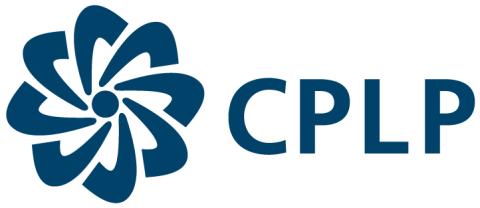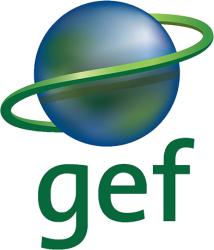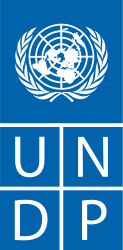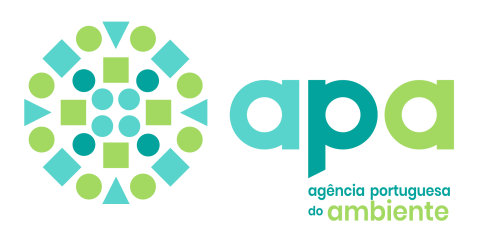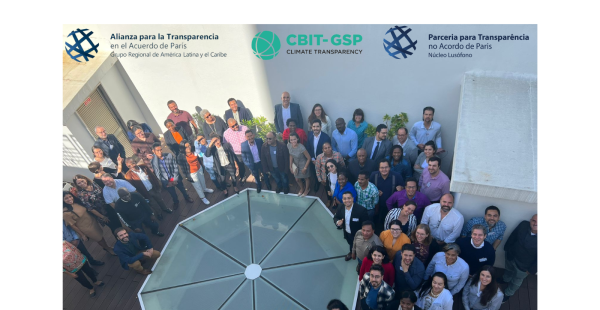
First LAC Group and Lusophone Cluster Cross-Regional Workshop
The first cross-regional workshop of the Lusophone Cluster and the Latin America and the Caribbean Regional Group of the Partnership on Transparency in the Paris Agreement (PATPA) took place on October 12 to 14, 2022 in Lisbon, Portugal. The event was co-organized by PATPA, CBIT-GSP, UNDP and FAO, and had the theme "synergies, parallelisms and co-benefits between climate change adaptation and mitigation measures".
Over the course of three consecutive days, 69 participants engaged in productive discussions and activities with their international counterparts. In total, 46 country representatives from 24 nations, as well as 24 non-party stakeholders from 7 international organizations, participated in the event.
The workshop was primarily driven by the need to support participants reach a common understanding of the policy development cycle of adaptation and mitigation measures. This was deemed an essential step of the event, given that only by having a solid grasp of the cycle would participants be able to identify the synergies, parallelisms and co-benefits of adaptation and mitigation measures. The workshop also aimed at encouraging participants to advance in the technical understanding of the presentation of information as part of the biennial transparency reports (BTRs), in line with the modalities, procedures and guidelines (MPGs) for transparency of the Paris Agreement.
On the first day, discussions begun by setting a common language around the broad policy cycle for mitigation and adaptation measures to climate change and its linkage with the concepts of synergies, parallelisms, and co-benefits. Participants identified areas in which different, specific activities – part of the general policy cycle – converge. They also pinpointed areas where adaptation and mitigation specialists could join forces, such as governance and political agenda, monitoring systems, and economic and financial analysis. The day concluded with a field visit to the Pedra do Sal Environmental Center, located in the municipality of Cascais, where participants were able to learn about specific mitigation and adaptation activities carried out at the local level.
On the second day, participants were divided into two groups for in-depth discussions within regional, language groups. Going back to the policy cycle, the morning discussions centered on its early stages: design and implementation. In the afternoon, participants dove deeper into the last part of the cycle: evaluation and reporting. Through different dynamics, participants were invited to share their experiences on policy design, ranging from the implementation of hydro-energy and measures to halt deforestation, to the protection of marine areas.
The topic of evaluation and reporting allowed for an ideal setting to review the new MPGs under the Paris Agreement’s Enhanced Transparency Framework (ETF). As all countries will follow the MPGs to produce their BTRs by 2024, participants engaged in self-assessment exercises and discussions around where they are in the process and what their next steps should be. The BTR Roadmap and Guidance Tool, jointly prepared by PATPA and FAO, is extremely useful in determining these steps and the required resources.
On the third, and last, day, all participants reunited again with an “open space” agenda that made them the protagonists of the event. An exercise designed to help them summarize and share their key learnings allowed for additional insights and collaboration opportunities to emerge. Through facilitated clinics and deep dives, they were able to discuss issues where they faced particular challenges or wanted to explore more opportunities, such as gender, areas of collaboration (thematic or territorial), emissions projections for the AFOLU sector, risk and adaptation monitoring, and approaches and methodologies for transparency from the global south.
The final moments of the third day were dedicated to (besides informing participants about support available from PATPA and CBIT-GSP) a personal and group reflection on next steps. Participants recognized that the workshop was the beginning of a potentially advantageous collaboration between mitigation and adaptation experts, and between practitioners from Latin America and the Caribbean Group and the Lusophone Cluster. They recognized each other as a “network of support” towards the ETF.
In the downloads section, on the right side of this page, you can access the agenda of the event.
Below, you can find a list containing all presentations made during the event, ordered by day and presenter:
Day 1
Cycle of adaptation and mitigation measures, Cristina Urrutia (Öko Institut)
Identifying a common problem (initial definitions), Fernando Farías (UNEP)
The importance of institutional arrangements, Fernando Farías (UNEP)
Climate Adaptation in Cascais, João Dinis (APA)
Day 2
- LAC
- Introduction to day 2, Pia Zevallos (Libelula)
- Best practices in the design and implementation of mitigation and adaptation measures, Cristina Urrutia (Öko Institut)
- Enhanced Transparency Framework, MPGs and Guidelines, Cristina Urrutia (Öko Institut)
- Lusophone Cluster
- Recap on the cycle of mitigation and adaptation measures, Gonçalo Cavalheiro (Caos - Borboletas e Sustentabilidade)
- Project on the reinforcement of adaptation capacity in Guinea Bissau, António Pansau (Representative from Guinea Bissau)
- Project Mulheres pelo Clima (Women for the Climate), Susana Viseu (Business as Nature)
- Enhanced Transparency Framework Requisites, Thiago Mendes (UNDP)
Day 3
- Introduction to day 3, Pia Zevallos (Libelula)
- Support available from PATPA, Oscar Zarzo (PATPA)
- Support available from CBIT-GSP (Miriam Hinostroza, CBIT-GSP)
You can download the final report of the event here: in Portuguese and in Spanish.
The realization of the event was made possible thanks to the following organizations:





